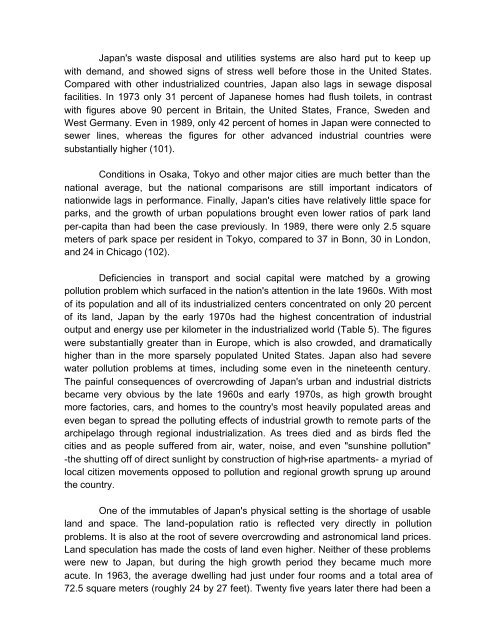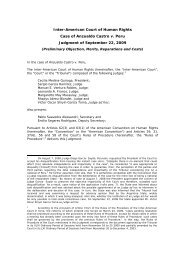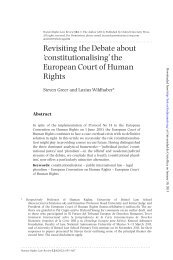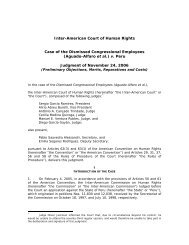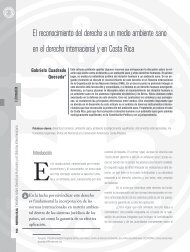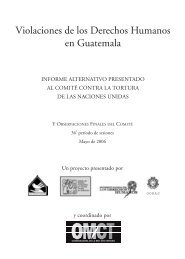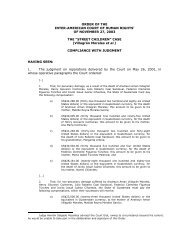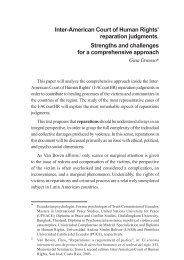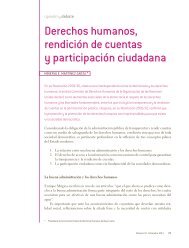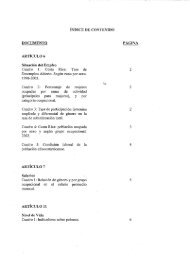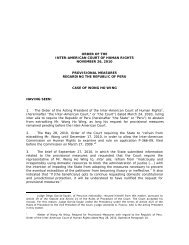The Political Economy of Japan Bradley M. RICHARDSON
The Political Economy of Japan Bradley M. RICHARDSON
The Political Economy of Japan Bradley M. RICHARDSON
- No tags were found...
You also want an ePaper? Increase the reach of your titles
YUMPU automatically turns print PDFs into web optimized ePapers that Google loves.
<strong>Japan</strong>'s waste disposal and utilities systems are also hard put to keep upwith demand, and showed signs <strong>of</strong> stress well before those in the United States.Compared with other industrialized countries, <strong>Japan</strong> also lags in sewage disposalfacilities. In 1973 only 31 percent <strong>of</strong> <strong>Japan</strong>ese homes had flush toilets, in contrastwith figures above 90 percent in Britain, the United States, France, Sweden andWest Germany. Even in 1989, only 42 percent <strong>of</strong> homes in <strong>Japan</strong> were connected tosewer lines, whereas the figures for other advanced industrial countries weresubstantially higher (101).Conditions in Osaka, Tokyo and other major cities are much better than thenational average, but the national comparisons are still important indicators <strong>of</strong>nationwide lags in performance. Finally, <strong>Japan</strong>'s cities have relatively little space forparks, and the growth <strong>of</strong> urban populations brought even lower ratios <strong>of</strong> park landper-capita than had been the case previously. In 1989, there were only 2.5 squaremeters <strong>of</strong> park space per resident in Tokyo, compared to 37 in Bonn, 30 in London,and 24 in Chicago (102).Deficiencies in transport and social capital were matched by a growingpollution problem which surfaced in the nation's attention in the late 1960s. With most<strong>of</strong> its population and all <strong>of</strong> its industrialized centers concentrated on only 20 percent<strong>of</strong> its land, <strong>Japan</strong> by the early 1970s had the highest concentration <strong>of</strong> industrialoutput and energy use per kilometer in the industrialized world (Table 5). <strong>The</strong> figureswere substantially greater than in Europe, which is also crowded, and dramaticallyhigher than in the more sparsely populated United States. <strong>Japan</strong> also had severewater pollution problems at times, including some even in the nineteenth century.<strong>The</strong> painful consequences <strong>of</strong> overcrowding <strong>of</strong> <strong>Japan</strong>'s urban and industrial districtsbecame very obvious by the late 1960s and early 1970s, as high growth broughtmore factories, cars, and homes to the country's most heavily populated areas andeven began to spread the polluting effects <strong>of</strong> industrial growth to remote parts <strong>of</strong> thearchipelago through regional industrialization. As trees died and as birds fled thecities and as people suffered from air, water, noise, and even "sunshine pollution"-the shutting <strong>of</strong>f <strong>of</strong> direct sunlight by construction <strong>of</strong> high-rise apartments- a myriad <strong>of</strong>local citizen movements opposed to pollution and regional growth sprung up aroundthe country.One <strong>of</strong> the immutables <strong>of</strong> <strong>Japan</strong>'s physical setting is the shortage <strong>of</strong> usableland and space. <strong>The</strong> land-population ratio is reflected very directly in pollutionproblems. It is also at the root <strong>of</strong> severe overcrowding and astronomical land prices.Land speculation has made the costs <strong>of</strong> land even higher. Neither <strong>of</strong> these problemswere new to <strong>Japan</strong>, but during the high growth period they became much moreacute. In 1963, the average dwelling had just under four rooms and a total area <strong>of</strong>72.5 square meters (roughly 24 by 27 feet). Twenty five years later there had been a


